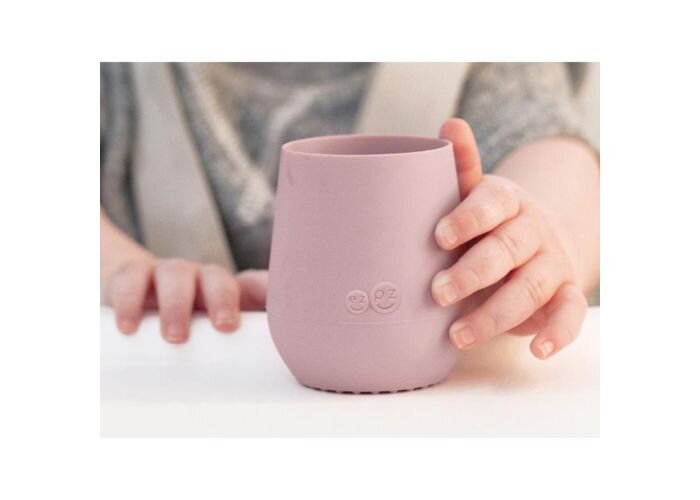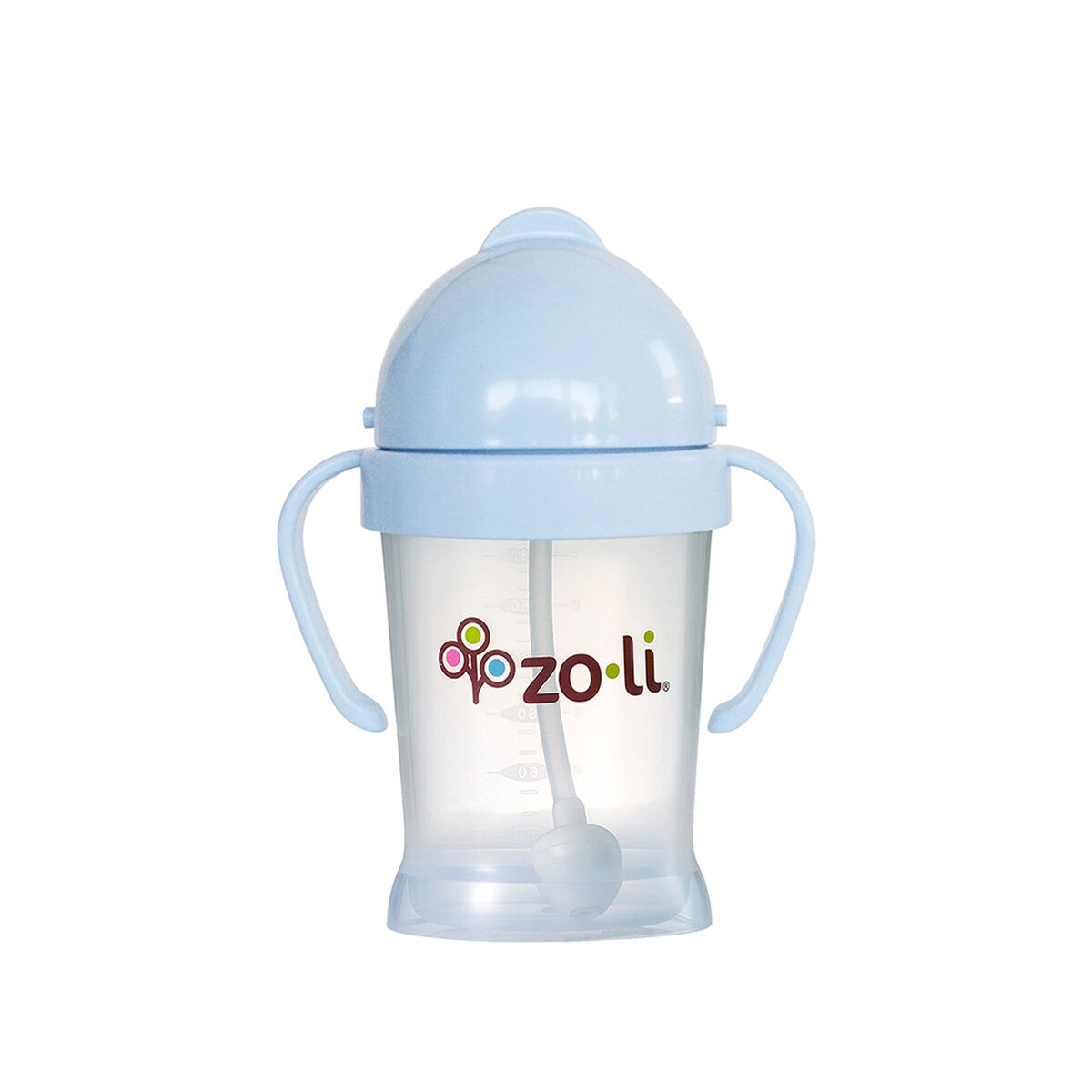Helping Your Child Drink From An Open Cup (& Why You Should Skip the Sippy Cup)
The American Academy of Pediatrics recommends that children stop drinking from a bottle by 18-months of age. But it can take months for little ones to make this transition, so it’s a great idea to start working towards discontinuing use around 12 months. This way, your baby will have lots of time and practice drinking from a cup before it’s time to switch. We recommend that you start helping your child drink from an open cup around age 6 months old, especially if they’re showing signs that they’re ready to eat solid food.
How To Help Your Child Drink From A Cup
When your child is first starting to move away from bottles, put a very small amount of liquid-- either water, formula, or breastmilk-- into an open cup. Then, gently help them bring the cup to their lips.
Using just a little bit of liquid at a time lets your child slowly build up the skills they need to drink from a fuller cup later on. It also helps to reduce the messes and spills that open cups can make!
Why You Should Avoid The Sippy Cup
When we drink and swallow, our tongue raises up on its own. A traditional, hard-spout sippy cup interrupts this process by keeping the tongue pressed down, stopping little ones from completing a proper, natural swallow.
Try it yourself! Swallow once normally, and then do it again while trying to keep your tongue pressed down, imagining that it’s being held down by the hard spout of a sippy cup. Harder to do, right? You can see why we would want kids who are just learning how to drink from a cup to avoid this!
What if we already use sippy cups?
If you already have sippy cups at home, that’s totally fine. Just try to use them a bit less-- for on-the-go and occasional use only, and start introducing an open cup whenever you can.
our Favorite (Non-Sippy) Cups
When transitioning away from the bottle, we always recommend starting with an open cup. Then, once your child can drink some liquid from the cup with a little assistance from you, or when they can pick it up and put it down, you can introduce a straw cup.
When your child has mastered both, you can alternate. Open cups are great for at home, and straw cups can be helpful when you’re on the go! Here are a few of our go-to open and straw cups.
Open Cups
Our favorite first cup is The Tiny Cup by ezpz. It’s very soft on their little mouths, and they can hold it easily. It takes practice to learn to drink from a cup.
For babies, start out with a small amount of water, breastmilk, or formula and help them gently guide it to their mouth. Offer a bit with meals and snacks so they can practice. The transition doesn’t happen right away and that’s why frequent exposure and practice is important. At first, they may just play around with the cup. That’s okay! It’s all part of the learning process.
Straw Cups
When you’re helping your child learn to drink from a cup, straw cups are a perfect option, especially if you use them after your child has started to get the hang of an open cup.
The zo-li cup featured below has a thin, flexible straw that is also weighted, so your child can drink from it even when they tip it upside down.
When you give your child a straw cup keep in mind that it takes a lot of practice and exposure. So keep presenting it at meals and let them explore the cup. If it seems like they really can’t get it down, we recommend trying this TalkTools Honey Bear Drinking Cup which can help your child get the hang of it.
Full Permission to Skip The Sippy Cup!
If you’re thinking you might not want to use sippy cups at all with your little one, that’s okay! Drinking from an open cup and straw cup are the only two things your little one actually needs to master. Feel free to skip sippy cups altogether.
What if I think my child needs extra support?
You can talk to your doctor about this and also consider seeing a speech-language pathologist or occupational therapist that specializes in feeding.
Want To Help Your Child Develop More communication Skills?
Our (totally free) Talking & Understanding Milestones downloads can help! They’ll give you a window into what skills your child has now, and which ones they’ll develop next.



